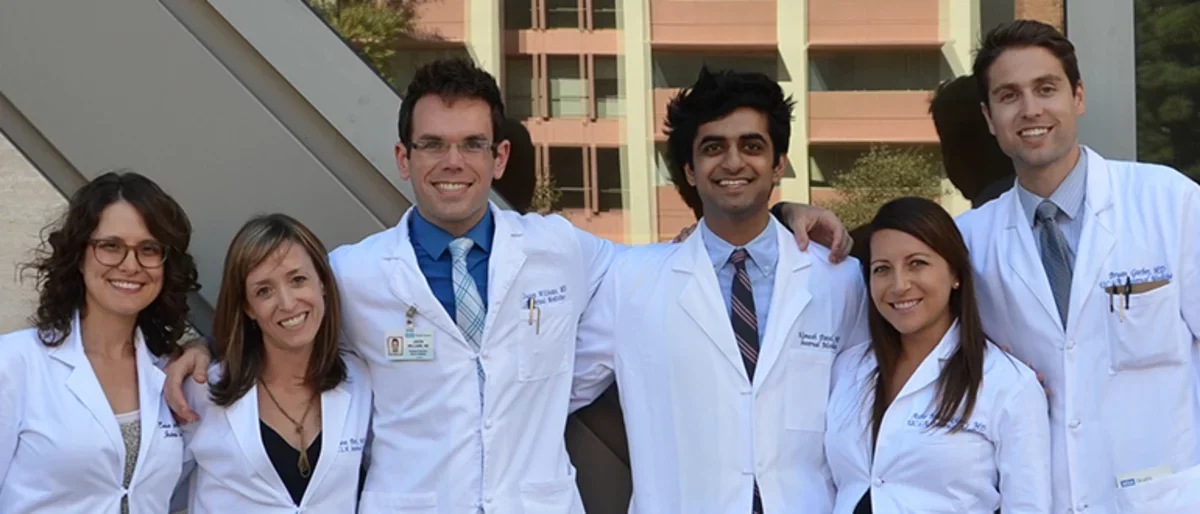GME Policies and Procedures
Graduate Medical Education Policies
The purpose of the David Geffen School of Medicine at UCLA policies is to ensure the quality and safety of both patient care and resident behaviors.
Need to verify postgraduate training?

Quick Links
Academic Due Process
Trainees
The GME Office is available to assist you with the interpretation of UCLA’s Academic Due Process Policy. Please feel free to contact us at (310) 206-5674 or GME@mednet.ucla.edu to set up an appointment.
Programs
Contact the GME Office for consultation prior to placing a trainee on leave or taking an Academic Disciplinary Action. The GME Office must be notified when an Educational Notice of Concern is to be issued. Please feel free to contact us at (310) 206-5674 or GME@mednet.ucla.edu.
Appointment Levels
Background Check Policy
Conflict of Interest and Vendor/Industry Guidelines
Clinical and Educational Work Hours Policy
Disability and Accommodation
Drug Free Workplace Policy
Diversity Statement
Disruptive Physician
Disaster Policy
Email
Eligibility, Selection and Appointment Policy
Evaluation and Records
Expansion Committee
Fatigue Mitigation Transportation Reimbursement Policy
Global Health Electives
International Medical Graduates
Impaired Physician Policy
Leave Policy
Monitoring Duty Hours
Moonlighting
Medical License
Non-Discrimination
The University of California does not discriminate on the basis of race, color, national origin, religion, sex, physical or mental disability, medical condition, ancestry, marital status, age, sexual orientation, citizenship or status as a covered veteran. This policy applies to all employment practices, including recruitment, selection, promotion, transfer, merit increase, salary, training and development, demotion, separation. This policy is intended to be consistent with the provisions of applicable State and Federal laws and University policies.
Read the Discrimination Policy (PDF)
New Program Requests
New Program Director Appointments
Professionalism Policy
Program Director Protected Time
Program Reduction and Closure Policy
Promotion and Renewal Policy
Records Retention
Restrictive Covenants
Restrictive covenants are prohibited for residents and fellows at UCLA. Housestaff are not, and will not, be required to sign non-compete agreements.
Resident Complement Increase
Resident and Fellow Supervision Policy
Resident Rotator Process
Selective Service Registration Requirement
Sleep Room Guidelines
Special Review Policy
Trainee Transfer Policy
Transition of Care Policy
Licensing Exam Policy
V